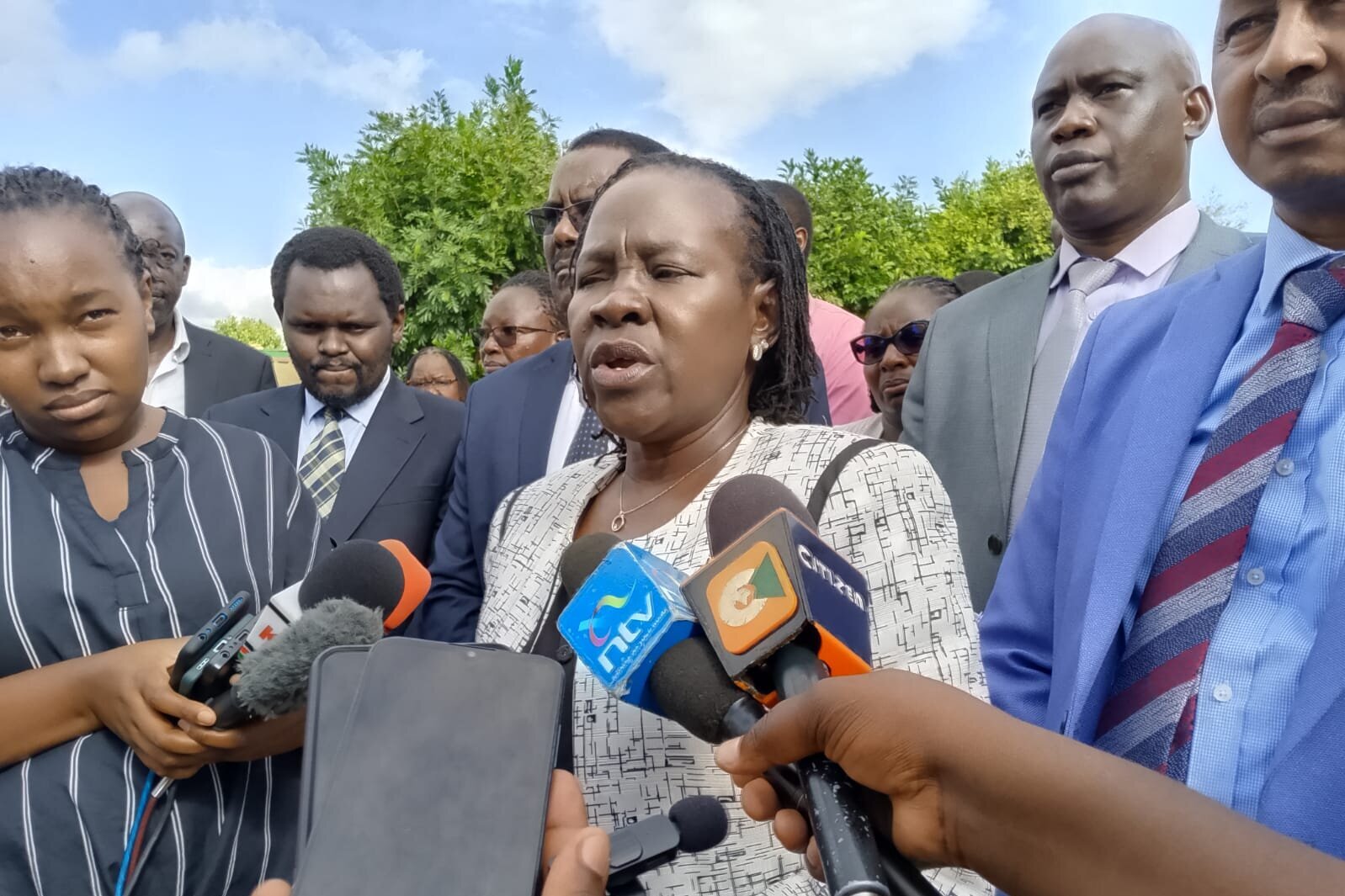Gov't ramps up certification of skilled workers through recognition of prior learning

TVET Principal Secretary Dr Esther Muoria (centre) addressing the media at the Nyeri National Polytechnic (NNP). Photo/James Murimi
The government is stepping up efforts to certify skilled, but undocumented workers across the country through the Recognition of Prior Learning (RPL) programme, a policy spearheaded by the Ministry of Education.
Speaking during a tour of the Nyeri National Polytechnic (NNP), Technical and Vocational Education and Training (TVET) Principal Secretary Dr Esther Muoria emphasized the government’s commitment to recognizing skills acquired informally, particularly in the Jua Kali sector.
“Many Kenyans have technical skills but lack formal certification. Through RPL, we are inviting such individuals to our TVET institutions countrywide, where their skills can be assessed and certified,” Dr Muoria said.
Accompanied by principals from various TVET institutions in the Mt Kenya region, the PS noted that certification will enable skilled workers to access employment opportunities both locally and internationally, and qualify for government tenders.
This week, NNP hosted a training programme for 30 assessors and practitioners, drawn from Mt Kenya East and West, who will evaluate skilled workers at the grassroots level.
“These assessors will return to their respective institutions and begin certifying workers who demonstrate competency in their fields,” she added.
So far, over 5,000 individuals have been certified since the launch of the RPL programme in March 2024.
“We certified 1,000 people on the very first day. This shows the level of interest and need for this initiative,” Dr Muoria said, adding that the government intends to fast-track the programme to reach more people.
The Curriculum Development Assessment and Certification Council (CDACC) has been mandated to oversee the assessments and ensure credibility in the certification process.
The PS said assessors must be well-trained to maintain the integrity of the programme.
To enhance flexibility and accessibility, the ministry has modularised the TVET curriculum.
Students will be trained in modules, each lasting three months, followed by certification in the fourth month.
“This means students can earn a certificate every three months and either proceed to the job market or return for additional modules,” said the PS.
Even those currently working, including workshop managers, are encouraged to get certified.
“It is important to not only have the title of manager but also to be certified and skilled in your area of expertise,” she emphasized.
Dr Muoria underscored that the RPL programme aligns with President William Ruto’s directive to fast-track youth entry into the workforce.
“President Ruto wants to ensure that our youth are skilled, certified, and ready to contribute meaningfully to national development,” she said.
Following the President’s recent visit to China, 20 companies signed agreements to establish industries in Kenya.
“By the time these companies set up operations, we must be ready with the skilled workforce they need,” Dr Muoria noted.
In addition to the industries, infrastructure projects such as the extension of the Standard Gauge Railway (SGR) and road expansions require a highly skilled labour force.
“We are training our people to drive development across all sectors. This is how we will lift the country to the next level,” she said.
NNP Chief Principal Dr David Mwangi praised the initiative, noting the institution’s role in empowering smaller training centres.
“We are opening our doors to smaller institutions, enabling them to become key players in the dissemination of technical skills,” said Dr Mwangi.
He added that the assessors trained at NNP will not only support their institutions but also play a critical role in national development, especially in projects like the Affordable Housing Programme.
“We encourage more institutions and individuals to embrace this training model. A learner can earn up to three certificates in a year through our RPL system, validating their skills across different disciplines,” the Chief Principal said.
Currently, Kenya has 223 technical training institutions and 24 national polytechnics.
The government views the TVET sector as a cornerstone of its economic transformation agenda and is calling on the youth to seize available opportunities.
President Ruto recently reiterated his administration’s support for vocational training, especially through TVET institutions.
“I want to assure TVET students that under our development plan, there are opportunities in every sector—both locally and globally—meant to help them contribute to building our economy,” said the President.
The RPL initiative reflects a broader push by the government to integrate informal sector skills into the formal economy and provide pathways for upward mobility among the youth and other skilled workers.
